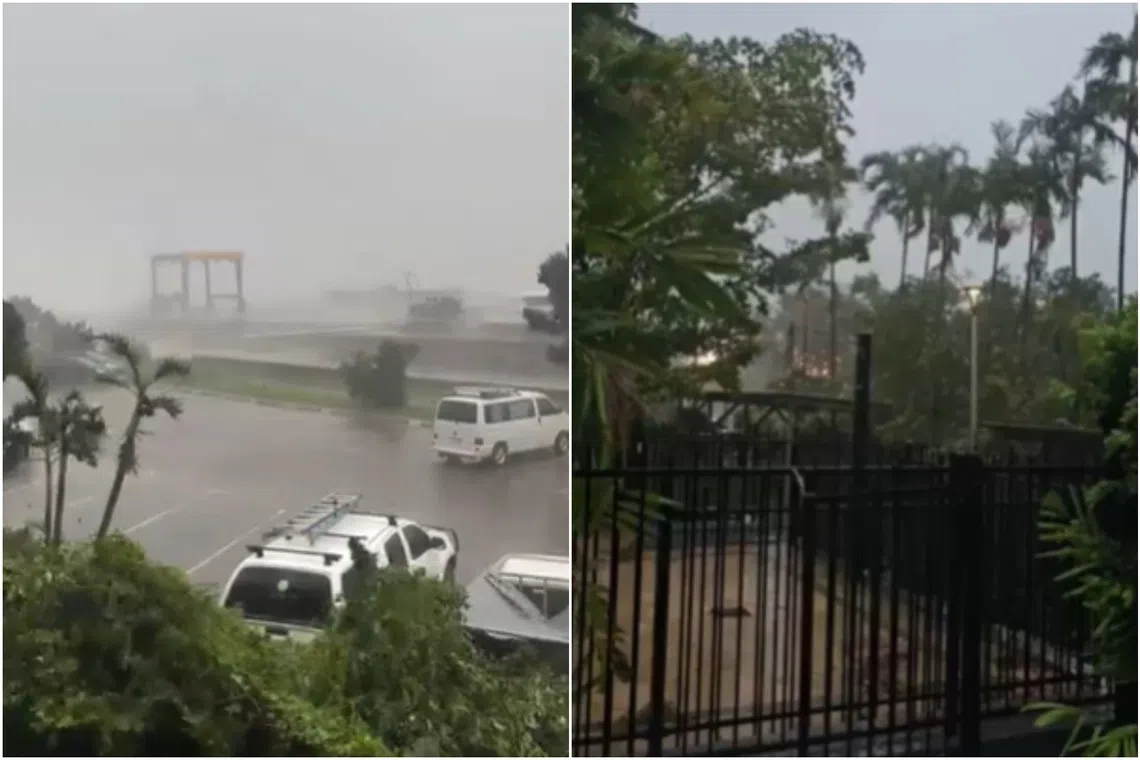Northern Australia cleans up after Cyclone Fina
Sign up now: Get insights on Asia's fast-moving developments

Tropical Cyclone Fina swept between city Darwin and the sparsely populated Tiwi Islands, where wind gusts reached 110kmh.
PHOTOS: SCREENGRAB FROM WEATHER MONITOR/X
Sydney - Residents of Australia’s Northern Territory were clearing streets on Nov 23 after a damaging tropical cyclone that brought intense winds overnight, tearing up trees and traffic lights and cutting power.
Tropical Cyclone Fina loomed off the coast of the Northern Territory for several days before rapidly intensifying to a category 3 storm.
It swept between busy city Darwin and the sparsely populated Tiwi Islands – an archipelago about 80km off the coast – where wind gusts reached 110kmh.
The “very destructive core” of the cyclone has moved away from the Northern Territory, but heavy rain and winds will persist on Nov 23, Bureau of Meteorology forecaster Angus Hines said.
Northern Territory Chief Minister Lia Finocchiaro said about 19,000 homes and businesses had lost power in the past 24 hours and efforts were being restore it.
She said there was significant debris, including trees and powerlines, and warned people to take care as they moved around.
“In true territory spirit, neighbours are coming out with chainsaws and everyone’s chipping in,” she said on Nov 23.
“This cyclone saw a territory that was united and prepared for what was to come, and as a result we’ve seen largely minimal impact and no injuries.”
Footage showed sheets of rain pouring from roofs during the peak of the cyclone, while huge trees toppled into backyards and roads.
A section of roof at the Royal Darwin Hospital collapsed, leaving bricks and debris littering a corridor floor.
The Darwin Airport, which was forced to shut on Nov 22, reopened on Nov 23.
Federal member of parliament Luke Gosling said several areas had lost power, but people were well prepared.
“Everyone just looks out for each other up here in Darwin and Territorians generally, so those that have been through several cyclones and have lived here for a long time just help out and give advice to those who are all a bit new and worrisome,” he told the ABC.
Fina is now moving offshore toward Western Australia, and forecasts say it may intensify to a category 4 storm.
But weather authorities said on Nov 23 it was unlikely the cyclone would make landfall and would gradually break apart in the coming days.
Researchers have repeatedly warned that climate change amplifies the risk of natural disasters such as bushfires, floods and cyclones. AFP


